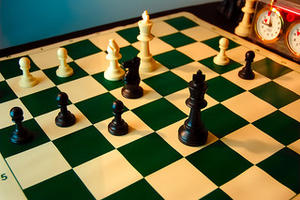If you’re addicted to puzzles, you’ve probably already tried all of the jigsaw puzzles, Rubik’s cubes, word games, and logic problems that you can get your hands on. If you’re tired of your usual puzzles and want something new, tour puzzles are a fun and exciting alterative.
Tour puzzles use one token that represents a traveler.
The token is you, the person attempting to solve the puzzle, or you may have numerous different tokens that you must control. These are the objects that move around the board.
There is usually a designated beginning and end to a tour puzzle.
The player starts at the starting line and attempts to make it to the finish, and there are sometimes certain items to retrieve along the way. Some tour puzzles have special rules at different points in the puzzle.
Tour puzzles come in a variety of forms.
Mazes and labyrinths require the player to navigate through a series of confusing twists and turns without crossing the walls or borders. A knight’s tour uses a chessboard and attempts to visit every square at least once, and logic mazes are mazes with special rules and requirements for completing them.
To learn more about tour puzzles and to find out where to play them, visit here.


 Equal Housing Opportunity
Equal Housing Opportunity